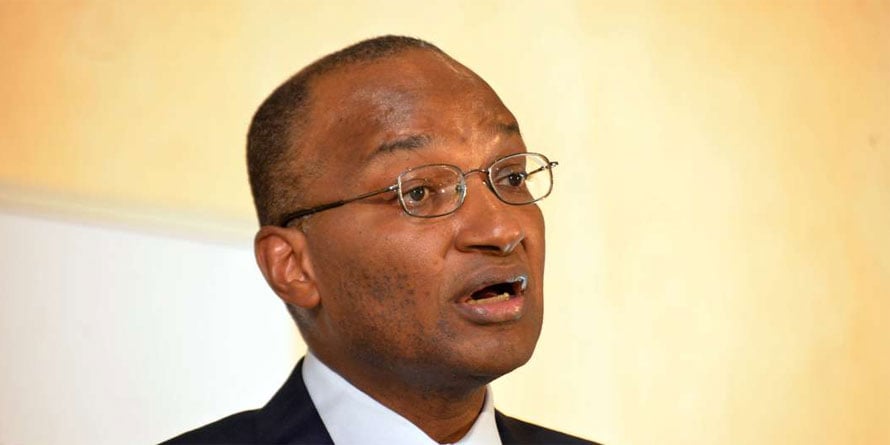Economy
Kenya awaits approval of 263 billion shillings IMF loan starting next week
Wednesday, March 31, 2021
Dr Patrick Njoroge, Governor of the Central Bank of Kenya. PHOTO FILE | NMG
Summary
- Central Bank of Kenya Governor Patrick Njoroge said some $ 314 million (34.45 billion shillings) is expected to be disbursed after the IMF’s board meeting on Friday.
- Kenya and the IMF reached a staff level agreement in mid-February for the 38-month credit facility, which will be disbursed in stages.
Kenya expects the first $ 2.4 billion (263.33 billion shillings) batch of the International Monetary Fund’s new funding program to be approved and wired next week, giving the economy a boost. government response to the fight against Covid-19.
Central Bank of Kenya Governor Patrick Njoroge said some $ 314 million (34.45 billion shillings) is expected to be disbursed after the IMF’s board meeting on Friday.
Kenya and the IMF reached a staff level agreement in mid-February for the 38-month credit facility, which will be disbursed in stages.
“The (IMF) program is intended to support our response to Covid-19. It will provide direct budget support and, in terms of other policies, it intends to anchor and reduce debt vulnerabilities, â€Dr Njoroge said.
Kenya requested the IMF loan in December, the second after $ 739 million (Sh81.08 billion under current exchange rates), received in May last year, which Kenya has spent to respond to shocks. economic effects caused by the first wave of the pandemic. .
New IMF money will be earmarked for the second phase of Kenya’s response to Covid-19 by filling yawning budget deficits as the country battles falling incomes due to the pandemic’s blows on economic activity.
“In a sense, the key element of this program is that it anchors fiscal consolidation through revenue-oriented policies and, therefore, reduces debt vulnerabilities over the medium term,†said Dr Njoroge.
Kenya’s cash position has deteriorated in recent months amid rising debt service obligations and falling income, as businesses and households grapple with the impact of partial Covid business closures -19 and income travel restrictions.
Debt service costs for the first eight months through February 2021, for example, for the first time exceeded recurrent expenses such as salaries, allowances and government administrative expenses, signaling the severity of the deterioration. the country’s fiscal situation.
Total debt repayments during the period amounted to 638.29 billion shillings, exceeding current government expenditure by 5.71 billion shillings.
Dr Njoroge said additional funds would likely be injected into the budget by the World Bank Group before the end of this fiscal year in June.
“There will be significant concessional flows that will support the government and even the (currency) reserves over the next few months before the end of this fiscal year,” Dr Njoroge said.

